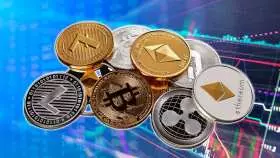
The value of an ounce of gold soared to a record $898 Jan. 11, topping the 1980 high of $875 per ounce. Since then, the price of gold has risen even higher, closing at $926.90 Jan. 28. However, when the numbers are adjusted for inflation, gold’s all-time high is not $875, but approximately $2,100. The current price of gold remains at less than half the inflation-adjusted 1980 high.
Is gold undervalued and due for an even greater surge? Many experts believe gold is bound to hit $1,000 per ounce, and possibly higher, while others think the precious metal is overvalued and due for a correction.
“We’re going to see [$1,000 per ounce] and more by May, in my view, before a violent correction,” according to Dominic Frisby’s MoneyWeek commentary.
For now, at least, gold prices don’t seem to be in any imminent danger of a downswing as values remain around $883 per ounce, according to Monex Precious Metals.
Is gold undervalued?
It could be argued that the highest price an ounce of gold has ever achieved is the inflation-adjusted $2,100, not the $875 most people have heard. Thus, it seems to make sense that, if gold was once valued at the equivalent of more $2,000 per ounce, it is undervalued at $923.
Claim up to $26,000 per W2 Employee
- Billions of dollars in funding available
- Funds are available to U.S. Businesses NOW
- This is not a loan. These tax credits do not need to be repaid
“[T]he steady ascent from the low early in 2001 through 2005 was followed by a dramatic acceleration in the rate of advance,” according to SafeHaven.com. “[T]he new uptrend in gold, far from being ‘long in the tooth,’ is still in its infancy. The sort of advance we can expect will be similar to that which occurred in 2005 [to] 2006, and given the current and probable money supply growth in the Eurozone, as it battles to remain competitive, the uptrend in gold against the Euro may be even more powerful than the 2005 [to] 2006 ramp.”
One of the reasons experts predict soaring gold prices over the coming year is because of other factors in the market that will undoubtedly have an effect on the price of the metal. Analysts predict that the Fed will continue to cut interest rates, according to MSN Money; this will likely fuel greater numbers of investors seeking ways to diversify out of the dollar. The continuing devaluation of the dollar has and will probably continue to have many investors purchasing gold as an inflation hedge.
“In times of uncertainty investors turn to gold as a hedge against unforeseen disasters, since gold is one of the few investments that is not simultaneously an asset and someone else’s liability,” according to InflationData.com.
Is gold overvalued?
However, the fact that the inflation-adjusted value of gold in 1980 tops $2,000 per ounce doesn’t necessarily mean that gold is actually worth that much today. The actual trading values of gold tend to follow the nominal prices, not those adjusted for inflation.
“Ever since gold trading officially and legally began on the Comex on 31 December 1974, history shows that gold prices have spent more than half of the time since then trading between $250 and $450,” according to a Kitco commentary by John Nadler, senior analyst for Kitco Bullion Dealers Montreal.
The reason behind this? Nadler wrote that the price of gold essentially has a built-in “peak.” When the price per ounce rises above $400, the higher prices make it easier to fund further mining efforts and the supplies consequently increase. Gold becomes expensive to purchase for jewelry-making purposes, so fewer jewelers buy it. More individual jewelry owners opt to sell their jewelry for its gold content. In short, higher prices mean that the market gets flooded and, in turn, the prices go down again, according to Nadler.
“It takes scary economic and political conditions driving investors to hoard increased amounts of gold to keep prices above $400—the sort of market that has been seen consistently since 2001,” Nadler wrote.
So, is gold overvalued? It’s technically possible that, yes, it is. But that doesn’t necessarily mean that the prices won’t continue to rise, at least for the time being. The economic climate has investors scrambling for a way to hedge against the falling U.S. dollar, which is likely to continue boosting gold prices for a while.
“We think gold is…overvalued by about $150, but that can go on for a long time,” John Reade, the precious metals chief at UBS, said in The Sydney Morning Herald. “A lot of our clients have been buying gold since the credit crunch because they think central banks will respond with aggressive monetary easing. If that becomes a mainstream view, gold will soon have four figures on it.” And, if that is indeed the case, gold may very well be due for a correction in the future.



